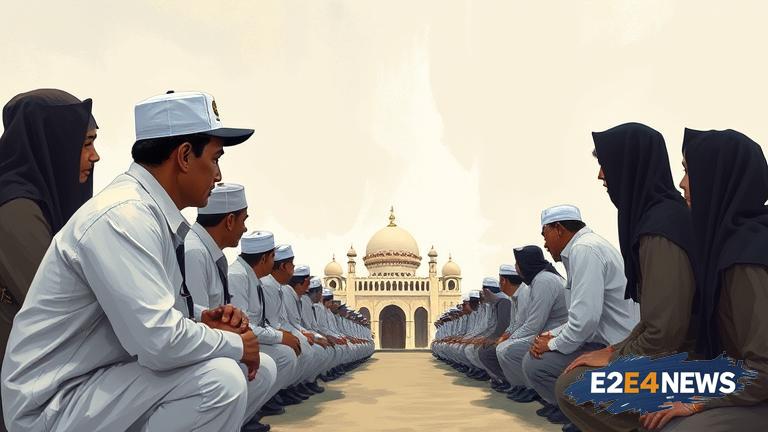The city of Davao, located in the southern Philippines, has long been regarded as a model for peace and order in the country. Behind this success story lies the unsung heroes of the Madrasah units, who have been working tirelessly to promote harmony and understanding among the city’s diverse population. For years, these units have been silently contributing to the city’s peace and order efforts, often going unnoticed by the general public. However, their impact cannot be overstated. The Madrasah units have been instrumental in promoting interfaith dialogue, providing alternative education, and fostering community engagement. Through their efforts, they have helped to build bridges between different religious and cultural groups, promoting a sense of unity and cooperation. One of the key ways in which the Madrasah units have achieved this is through their outreach programs, which aim to promote social cohesion and address the root causes of conflict. These programs have been particularly effective in addressing issues related to poverty, inequality, and social injustice. By providing support to marginalized communities, the Madrasah units have helped to reduce tensions and promote a sense of shared humanity. Furthermore, the Madrasah units have also played a crucial role in promoting education and cultural awareness. They have established alternative schools and educational programs, which provide young people with a comprehensive education that emphasizes the importance of tolerance, respect, and understanding. These programs have been highly successful, with many graduates going on to become leaders in their communities and promoting peace and harmony. In addition to their educational initiatives, the Madrasah units have also been involved in various community development projects. These projects have focused on addressing the social and economic needs of local communities, providing support for small businesses, and promoting sustainable livelihoods. Through these initiatives, the Madrasah units have helped to empower local communities, promoting self-reliance and self-sufficiency. The Madrasah units’ commitment to peace and order has also been recognized by the local government, which has partnered with them on various initiatives. This partnership has been highly effective, with the Madrasah units providing valuable insights and expertise to inform policy decisions. As a result, the city of Davao has been able to develop more effective strategies for promoting peace and order, which have had a positive impact on the entire region. Despite their many successes, the Madrasah units face numerous challenges in their work. One of the main challenges they encounter is funding, as they rely heavily on donations and grants to support their programs. Additionally, they also face challenges related to capacity building, as they seek to expand their reach and impact. However, despite these challenges, the Madrasah units remain committed to their mission, driven by a deep sense of purpose and conviction. As the city of Davao continues to grow and develop, the Madrasah units will play an increasingly important role in promoting peace and order. Their silent yet vital contributions will continue to inspire and motivate others, promoting a sense of hope and optimism for the future. In conclusion, the Madrasah units’ role in Davao City’s peace and order efforts is a testament to the power of community-led initiatives. Their commitment to promoting harmony and understanding has had a profound impact on the city, and their work will continue to inspire and motivate others for generations to come. The city of Davao is a shining example of what can be achieved when different communities come together to promote peace and order. The Madrasah units’ story is a powerful reminder of the importance of interfaith dialogue, education, and community engagement in promoting social cohesion and addressing the root causes of conflict. As the world continues to grapple with the challenges of promoting peace and harmony, the Madrasah units’ experience offers valuable lessons and insights. Their story is a powerful reminder of the importance of community-led initiatives and the need for greater support and recognition of their work.
